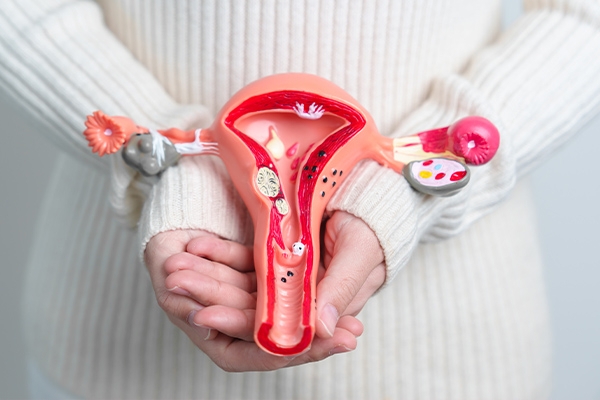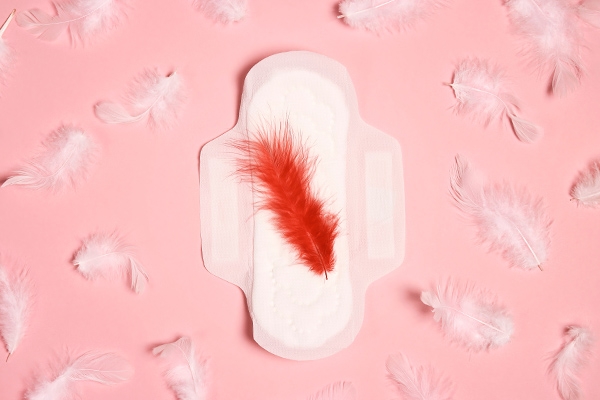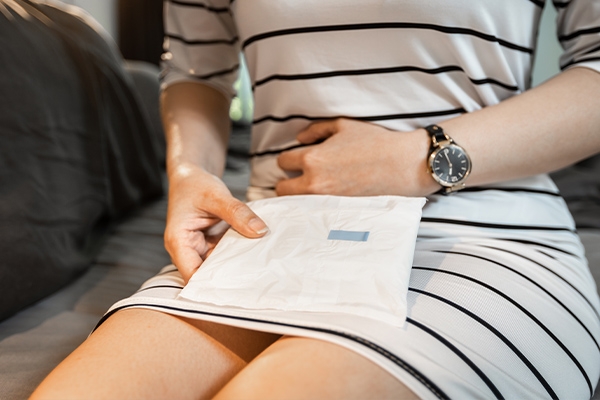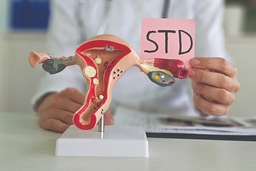Pads and Cervical Cancer: What's the Truth?

The prevalence of cervical cancer continues to increase. While the primary cause is sexual intercourse, can poor hygiene be linked to cervical cancer?
Menstruation is a natural bodily process for women, indicating periodic physiological changes. During menstruation, blood comes out of the vagina because the egg is not fertilized. This blood comes from the shedding of the uterine wall (endometrium), which contains many blood vessels.
Maintaining hygiene during menstruation is crucial to preventing infections and diseases in the reproductive organs. One option is to use safe and hygienic sanitary pads.
A pad soaked with menstrual blood and not replaced immediately will dampen the vagina. A moist vagina makes it easier for the HPV virus to reproduce in a woman who has just been exposed to it.
Even though sanitary pads do not directly cause cervical cancer, maintaining cleanliness during menstruation remains essential.
Tips for maintaining cleanliness during menstruation

1. Wear comfortable, cotton underwear: Cotton easily absorbs sweat. Tight underwear will keep the feminine area moist and warm, providing a breeding ground for germs.
2. Changing the sanitary pad every 3–4 hours: This keeps the vaginal area dry and germ-free. Moist areas can become breeding grounds for bacteria and fungi. Wearing a pad for too long can cause rashes or infections.
Replace pads based on the blood flow. Menstrual blood is contaminated with organisms from the body and can cause irritation, unpleasant odor, rashes, or urinary tract infections (UTI) if pads are not changed regularly.
Even when the flow is light, you should still change pads periodically to prevent infections.
3. Choose safe and comfortable pads: Option for pads without chlorine and harmful chemicals, and have high absorbency.
4. Use unscented toilet paper, tampons, or pads: Scented hygiene products can irritate the skin and affect the natural pH balance.
5. Maintain a healthy vaginal pH: A healthy vagina has a pH of 3.8–4.5 or lower. The balance of healthy microbes in the vagina helps keep it acidic to prevent infection. Some of these healthy microbes, called lactobacilli, keep the vagina acidic by producing lactic acid and hydrogen peroxide.
6. Keep the genital area clean. Wash the outer vagina (vulva) and buttocks daily. When using the restroom, wipe from the front to the back. Use only water to rinse the vulva. The vagina is a self-cleaning organ, and altering its natural pH balance with chemicals can be harmful, leading to infections like yeast infections or bacterial vaginosis.
7. Be aware of pad rash: This can occur when the blood flow is heavy, and pads are not changed promptly. Wet pads can cause thigh chafing due to friction. To avoid rashes, change the pad regularly to keep the area dry. If a rash occurs, apply an antiseptic ointment after bathing and before sleeping.
8. Stay hydrated: Drinking plenty of water will help clean the urinary tract and prevent infections like bacterial and fungal infections.
9. Track and mark menstrual cycles. The menstrual cycle is a valuable indicator of overall health. Irregular menstruation can indicate conditions, such as hormone disorders, diabetes, thyroid issues, and celiac disease. You can track your cycle using a calendar or a phone app.
10. Visit a healthcare provider for an annual checkup: Annual check-ups include a pap smear, and pelvic and breast exams. These are crucial for good reproductive health as they can detect early signs of cancer or other health issues.
11. Talk to your doctor if you notice changes: Seek medical advice if you experience changes in vaginal odor, extreme or unusual pain, or more severe menstrual symptoms, such as heavier or longer bleeding.
12. Get the HPV 4 or HPV 9 vaccination and regular HPV screening: These measures help maintain reproductive health, especially in preventing cervical cancer.
Hygiene and the risk of cervical cancer

Does poor hygiene in the genital area impact the risk of cervical cancer? Absolutely. This behavior affects the risk of cervical cancer.
HPV infection, which can cause cervical cancer, is often transmitted through sexual contact. If you have unprotected sex or with multiple partners, your risk increases.
Maintaining hygiene during menstruation and taking preventive measures can minimize the risk of infection and the health of the reproductive organs. Remember, hygiene is a simple yet essential step, in preventing various diseases.
If you have reproductive health issues, visit GWS Medika Clinic, a health clinic in Jakarta. Our doctors will help provide further consultation and treatment. GWS Medika Clinic also provides HPV 4 and HPV 9 vaccinations to protect you from cervical cancer.



